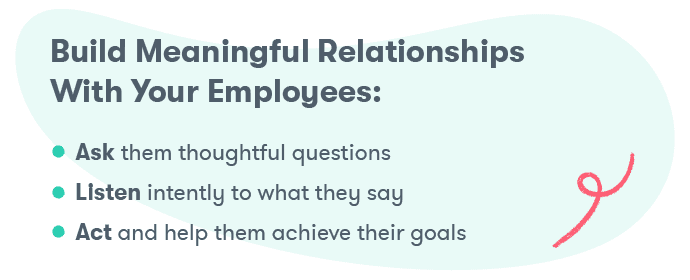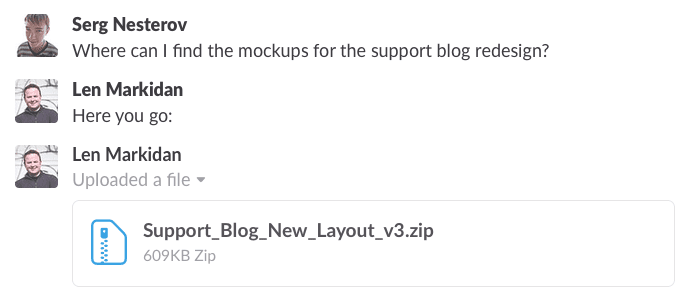Your Best Employees Will Quit. Here’s What To Do About It.
Not everyone is committed to your company for life, and that’s okay. Here’s how to deal with it.
“I’ve decided to take a job offer at another company.”
Oh, shit.
Imagine getting punched in the stomach.
And then, instead of recovering in a few minutes, imagine the shock and pain slowly turning into disappointment, anger and dread.
We’re SO close! How are we going to recover in time for launch?
Don’t you realize how important you are to this team?
How could you do this to me?
It doesn’t matter that these questions weren’t the right ones to be asking.
It doesn’t matter that they weren’t even remotely accurate, and frankly, incredibly selfish.
It doesn’t matter that they run counter to everything I’ve learned about managing employee exits since then.
It was what I felt right then and there. Betrayal. Sadness. Despair about the future.
When an employee leaves a 20-, 200- or 1000-person company, bouncing back isn’t a huge deal, especially if the company has built a brand that talented people want to work for.
When an employee leaves a 4-person company, that’s a quarter of the workforce gone in an instant.
If a large company lost 25% of their employees in a single day, it’d make the front page of the Wall Street Journal.

But for a small startup, it’s simply a fact of life: it happens.
It happened to us, it may have already happened to you, and it’ll most certainly happen to most startups.
I’ve learned a lot since that day in the early months of Groove’s history. I’ve learned how to handle employee departures on a personal level, I’ve learned how to manage and nurture a team to decrease the chance of churn, and I’ve learned how to protect the company from the inevitability of good people taking the next step in their careers.
Today, I’m sharing the most important and valuable lessons about those stumbles in our journey.
Note: 8,000+ companies use Groove to delight customers with fast, personal support at scale. All without breaking the bank. Start your free 7-day trial today! (No credit card required)
It’s Not Personal. Really.
As a founder, off the bat, you’re committing at least 10 years of your life to working hard on a single goal: turning something you’re passionate about into a successful business.
And you’re willing to make a lot of sacrifices in the pursuit of that goal.
Do you realize how insane it is to expect that of literally anyone else who isn’t a co-founder?
Of course you want the best employees possible.
But here’s the thing: top performers don’t just work hard on your business. They work hard on themselves.
They’re constantly working to better themselves and their position in life.
You can—and should—help them achieve their own personal goals (more on that below), but the reality is that you simply can’t provide that for everyone.
For many people, you don’t have what they’re looking for in the next* *step of their career, whether it’s an executive position managing a larger team, starting their own business, or any number of other roles that just don’t exist in a small startup.
If you want to hire the best (and I do), expect that they’ll behave like talented, ambitious people should.
Sometimes, they’ll outgrow the role you’ve given them. And if you can’t provide that next step, then someone else should.
They’ve worked hard and brought value to you and your team. Maybe they will again someday.
But for now, accept that it’s their time, wish them the best, and mean it.
You probably won’t take this advice the very first time a key employee quits. I’d certainly heard it before, and it didn’t help me. Emotion takes over. You learn this lesson over time.
But I hope that hearing it one more time makes you smarter and better about it than I was.
Your Job Is To Make Your Team Love Their Jobs
While good employees leaving is inevitable, not every single employee departure that happens is unavoidable.
So many startup founders—including me, in our early days—don’t do enough to make their teams love their jobs.
There are a lot of companies that think this means catered lunch or foozball tables in the office, but that’s superficial and doesn’t really get at the core of what makes great people love the work that they do and the business they do it for.
Ultimately, what it means will depend on your specific team, but I’ve found one great way to find out: ask, listen and actually act on what you hear.
Take the time, on a regular basis, to talk to your employees about their lives, goals and challenges. Ask them what they hope to accomplish, not just in the next week, but in the next year, five years and ten years in their careers. Listen intently to what they say, and think about how you can help them achieve that. And then act.

People have different goals.
Some will want to start a business of their own, become an executive in your company, have work/life balance so that they can focus their life on raising their family, work for a “dream” company someday, become an expert in a certain skill that they’ll be improving in their role, or any number of other dreams.
All are valid, and none are better or worse than any other.
But it’s important to know what that goal is, because if you can’t help them achieve their goal by giving them responsibilities that align with that goal, they’re going to ultimately be unhappy and ineffective in their position.
How To Protect Your Startup From Employee Churn
Despite your best efforts, employees will move on.
Here are three ways to protect your startup and ensure that things go as smoothly as possible when that happens:
1) Nobody Should Be Indispensable
It might seem counter-intuitive. With limited resources and huge goals, you want to hire people who can do work that nobody else can, right?
Well, yes. But no single employee should hold the keys to the kingdom, because when they leave, nobody will be able to get inside.
A good exercise that you can do here is to ask yourself: “if [employee X] moved on tomorrow, what would that do to us?”
Think about that for every single one of your employees.
If there are tasks that only a single person knows how to do, then you have a problem.
Fortunately, there’s a solution.
2) Document Institutional Knowledge
In the early days of a startup, your first employees will amass a great deal of knowledge about the workings of the company, and that’s a great thing.
But as the business grows and new employees come on, either to grow the team or replace departed employees, bringing people up to speed becomes a huge challenge.
For that reason, it’s important to document key processes in your business that only one or two employees know how to do, because someday, somebody else will need to know how to do those things, too.
This isn’t just important for churn, but for growth, too.
Processes worth documenting include:
- Key processes for
- Pushing product changes
- Publishing blog posts
- Sending out customer communication
- Marketing emails/campaigns
- Notes and processes for software that your team uses
- Logins for various software and service accounts that your team uses (keep this safe)
- Crisis communication plans
On an informal level, it’s been hugely valuable for us to switch from email as a communication tool to Slack, which saves all employee conversations.

That means that when a new employee comes online, they can easily search for answers to their questions.
3) Keep Your Team Happy
This can’t be understated. By building a strong culture (I love Rand’s post on this topic), you don’t just build a better and more enjoyable place to work, improve your chances of succeeding as a business and reduce employee churn; you make it easier on everyone when that churn happens.
When your team trusts that you genuinely have their best interests at heart, they won’t feel threatened to let you know they’re leaving, or even considering it. And when they do leave, they’ll want to do it on the best terms possible, eager to help with the transition, whether that means referring a replacement, training that replacement or any number of other things they can do to help.
Note: Is your business growing? Groove’s Shared Inbox, Knowledge Base, and reporting can help you delight customers with fast, personal support at scale—without breaking the bank. Sign up for a 7-day trial today! (No credit card required)
Support Your Employees, No Matter Where They Are
This is equally important to being a successful CEO as it is to being a successful human being: your employees join your team because they trust you to support them in their careers.
You need to deliver on that trust, whether they’re working for you or moving on to something else.
When an employee leaves, you’ll get over it. Your company will get over it. And you’ll all be fine.
Wish them well, and mean it.
Because that’s what you signed up for when you hired them.
An earlier version of this piece first appeared as a guest post on Inbound.org.